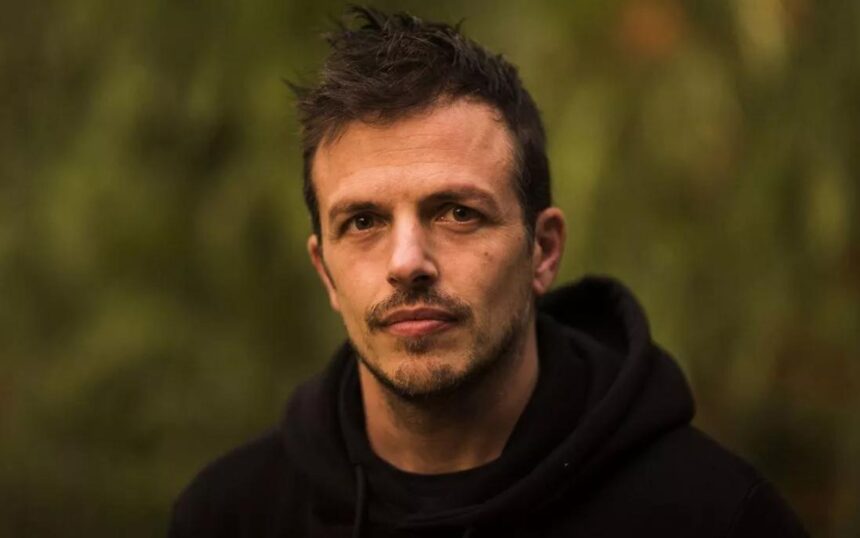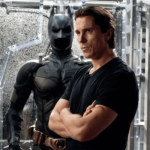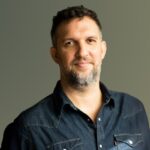How rewarding it is to make small films and have viewers connect as deeply as they do is priceless. You can’t get that with all the gold in the world.
Welcome to Hurwitz.TV’s Directors Interview Series, where we chat with some of the most influential filmmakers from all over the world.
In this series, you’ll have the opportunity to gain profound insights from the minds and creative journeys of these cinematic storytellers. Our goal is to explore the art of filmmaking, discover the inspirations and motivations that drive these directors, and delve into the captivating stories behind their remarkable works. From seasoned veterans to emerging talents, we talk about their artistic influences, memorable experiences, and the challenges they’ve faced along the way.
Today, I am joined by Argentine director Marco Berger, an award-winning filmmaker and screenwriter widely known for his films like Plan B, Hawaii, and Taekwondo. His 2011 film Absent won the coveted Teddy Award for Best Feature at the 2011 Berlin International Film Festival, where he joined the ranks of Pedro Almodóvar, Todd Haynes, Sébastien Lifshitz, and Stanley Kwan.
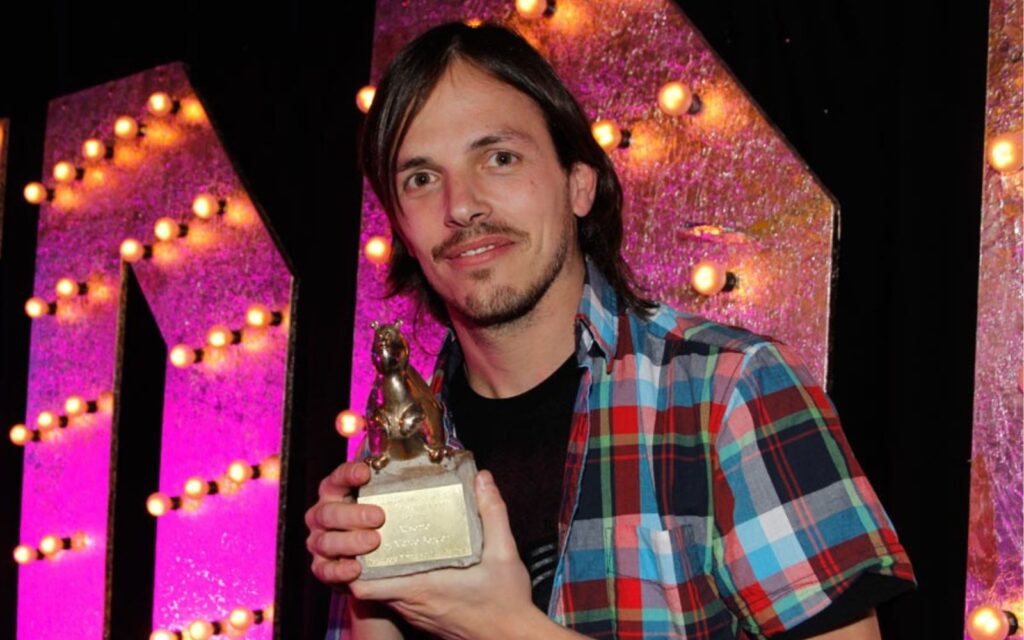
Dennis: Thank you for joining us Marco! I’m a big, big fan of your works! To kick things off, can you share the story of you wanting and deciding to become a filmmaker? What drove you to pursue this career path?
Marco: When I was a boy, I wanted to be an actor. I started studying theater when I was fifteen. I was already watching a lot of movies at that time. I remember watching Pasolini films at that time because I had a group of friends who were strange and we did activities not very much for our age, like watching those types of movies or going to strange exhibitions in museums. I think I liked the idea of making films but it seemed like an impossible profession to me. At that time I also hung out a lot with another group of friends, from my theater group. They went to a more modern school than me and had film classes. I was their actor. These were my first experiences making short films and seeing the world of cinema very briefly.
At that age, I also started writing a feature film with a friend. We expected that we would shoot it, but we never did. I think I saw it as an impossible dream. When I was eighteen, I wanted to study at the Universidad del Cine (where I studied years later) but it was very expensive and my family couldn’t pay for it. At twenty-three years old, after nine years of studying theater, working in short films as an actor and also in theater, I became disillusioned with the career of an actor and that was when I decided to try to find a way to study and maybe one day make films. Argentina was very bad so I moved to Spain to work in a bar and then to Norway where I lived for three years and worked as a cleaner. The road was long because I really started studying when I was twenty-seven. While in Norway, I got a scholarship to study in Argentina at the Universidad del Cine: first dream fulfilled.
Dennis: What was the greatest piece of advice given by a mentor that shaped the artist that you are today?
Marco: A television producer I met doing a pilot told me that the only obstacle one has in life is oneself. He made me understand that I should not get caught up in my thoughts, believe in myself, and pursue my dreams. I also had some advice from a painter aunt I have. She once told me: You have to be Zen. This means that you have to let things be as they should be. If an actor that I really want for a movie can’t be there, it’s probably because there is a better one for that character. I loved that because I realized that it helped me a lot when filming and in fact, it ended up happening to me. In 2015, I was filming a movie that was never finished, it was left halfway. The last part was filmed in December. When the project fell apart, Martín Farina offered me to film something with him in a house he had that was perfect for a film of mine, in his words. That movie ended up being Taekwondo – one of my favorite movies that wouldn’t exist if the other job finished. There I understood that everything has a reason and the pieces fit themselves together. I believe a lot in the path and in the destination. I understand that everything happens for a reason and that is why I am walking the path of my career this way.
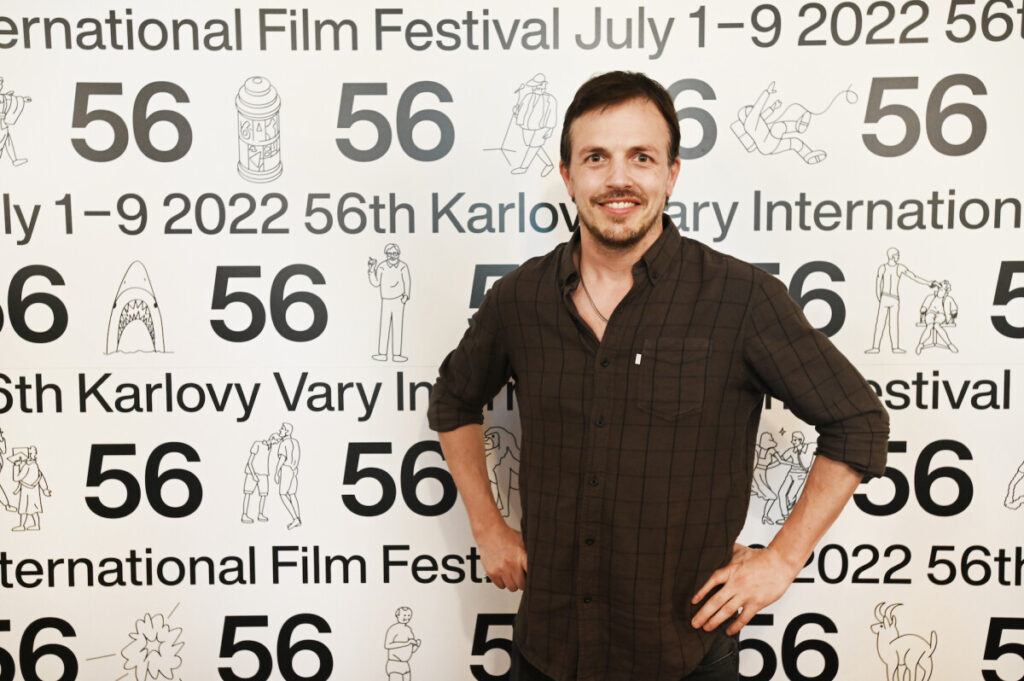
Dennis: Which movies and filmmakers inspire you the most?
Marco: My favorite film is The Cement Garden by Andrew Birkin based on the book by Ian McEwan. My favorite director is Kim Ki Duk, who unfortunately died in the pandemic. I like all his movies. His work is inspiring. I always have the fantasy that in my movie Hawaii, when the character appears as half a ghost and whispers two pineapples in his ear, it is a personal tribute to him. The film that impresses me the most is Bad Guy. Then I really like the work of the Dardenne brothers, the work of Lucrecia Martel and Ana Katz, two Argentine directors. From Lucrecía Martel the way of filming, the preciousness, the timing, and the sound; and Ana Katz’s humor and freedom. I also like the masters Almodovar, Arturo Ripstein, and Pasolini, whom I mentioned earlier. The scripts that I like the most are True Romance by Quentin Tarantino directed by Tony Scott and Who Wants to Be a Millionaire? by Simon Beaufoy Based on the novel Q & A by Vikas Swarup directed by Danny Boyle.
Dennis: Can you walk us through your creative process when developing a new film concept? How do you start from an idea and bring it to life on screen?
Marco: The first thing I think about is “what I want to talk about” or “what I want to play about.” From there I think about the genre, and the idea begins to blossom in my head. It almost always grows in my head for a while until I sit down in front of the computer to work. For example, with Young Hunter – one day it caught my attention that, in a video search, images with minors were filtered. That makes me ask “How does this happen?” and I decide to make a movie. So the issue is child pornography. Since it seems very dark to me, I decided that the genre is associated with horror. And so in my head, I begin to imagine what it would be like to mix the idea and the genre. With two of these premises in mind, I sit down to write a script that often does not reveal where it is going to go. I write many films without knowing the ending. The writing process is beautiful because I work very freely and I understand the journey while I do it. Luckily my work as an author was very recognized early on, which makes me work with a lot of freedom. There have never been two versions of a script of mine. I always had a single version, which is the one I ended up filming. I think that this freedom makes the works so unique, so personal, and not within any scheme or standardization.
Dennis: What are the most challenging and rewarding aspects of making a movie?
Marco: Sometimes I say (half-jokingly) that my career never started, and that the day is really going to begin when I can dream of a big film, really dream of what I want – a period film, futurism, actors under the snow – and film it with the same possibilities as my contemporaries. The budgets of all my films together to date do not reach the budget of a low-budget European film. I was once chatting outside a bar with Niels Schneider about the budget for The Imaginary Loves. He told me that they had done magic by being able to film that film with only 3,000,000 euros. That same year, I won the Teddy Award in Berlin with a film worth 50,000 euros. Making independent films forces me to have to adjust to reality all the time. Because my independence is based on never stopping filming. It has never happened that I think of an idea and then the producer appears to realize that idea. It was always the other way around. With the possibilities I had (the amounts that a producer offered me or, as in the case of Hawaii, with the money I got from crowdfunding) I thought about the film, I made it and then it existed. I think that’s the biggest challenge. Being able to be constantly present in the industry making films with ridiculous budgets. The challenge of this is to ensure that these films have the highest quality manufacturing and can compete strongly in the world of cinema. And the most important of all is the second part of your question. How rewarding it is to make small films and have viewers connect as deeply as they do is priceless. You can’t get that with all the gold in the world. When I’m asked and talk about budgets, the following question always comes up: Where is that producer who could make you film bigger movies? I wonder the same thing. Maybe reading this interview. You never know. I am still working. Talent is work, says David Mamet.
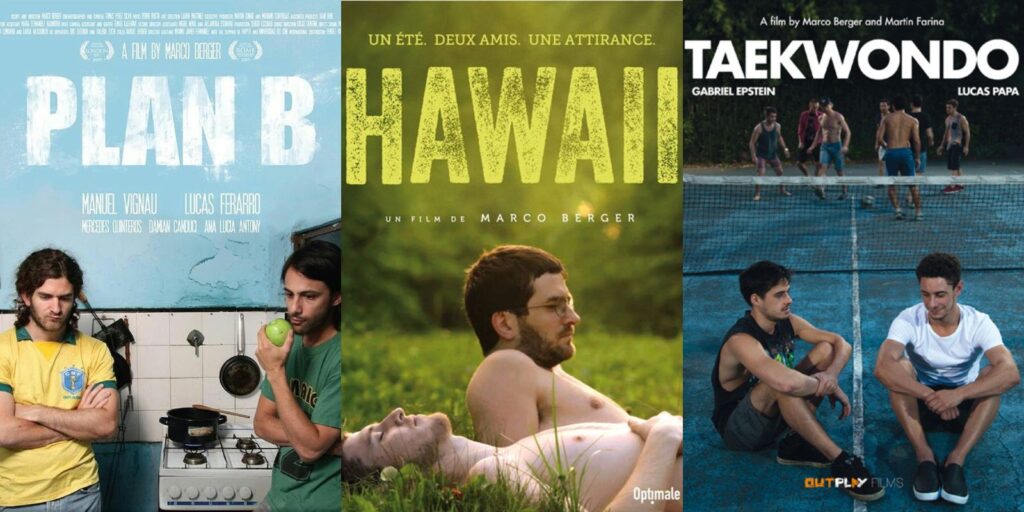
Dennis: I have always admired your creative choices in depicting the tension between characters in your films – from Plan B, Hawaii, and Taekwondo, to The Blonde One. Could you share what inspires your unique storytelling in the realm of queer cinema?
Marco: My great recurring theme is the impossibility of homosexual love. Anywhere in the world, there is someone who cannot love due to social, political, cultural, religious, and historical prejudices, which is the source of my inspiration. I came out of the closet when I was eighteen and I always say that my youth was stolen from me. I couldn’t kiss a boy or make love to a boyfriend my age like the rest of my straight friends could. Because the world is socially heterosexual. Obviously today we live in a different world where a person can marry another person of the same sex. But those are still very specific places and the world really is very big. Whenever there is a man who secretly desires another, who secretly loves him, who smells his shirt if he lets it on, who is tense in front of the one he likes, whenever that situation exists there will be a film of mine. A little to say “I am here, you are not alone” and also to propose “a different world is possible.” A large part of the LGTBQ+ community asks me to modernize myself and film the reality of gays today, or gay stories. It would seem very unfair to me. First, because there is already a lot of that everywhere, and second because it would seem unfair to me to abandon those who walk around the world hidden, covered, suffering from not being able to love, punished, and even killed for loving the one they desire. My cinema will always represent contrary desire and the birth of love. Realizing that one can love differently from the rest. Luckily, many people appreciate that I am faithful to my style and look forward to another film from me. The ones they like the most are the ones that take them along the same path as Plan B, Hawaii, and Taekwondo, the great trilogy of the birth of love.
Dennis: What was your biggest “is this really happening” moment of your career?
Marco: When I premiered Plan B in Rome I was excited and overwhelmed, obviously. On the day of the premiere, I wore a pink tie to go with my movie. When I walk the red carpet, a person from the Festival tells me: Someone wants to meet you. It was Milos Forman, Festival jury. I could not believe it. I felt stupid and a clown dressed up with a pink tie. He greeted me very warmly and later I found out that he really liked the movie. For me that moment was great. I never forgave myself for many years of dressing up. I thought he was going to think “he was a fool who only cared about the red carpet.” Now that I’m older I’m sure he thought it was funny and he must have just thought that he was young and enjoying that magical moment.
Dennis: Name a filmmaker or an actor you would love to collaborate with in the future and why?
Marco: First of all, Xavier Dolan, simply to get him back into the movies. Cinema should be a love for life. My big dream would be to work with Brad Pitt. I even have a movie always in my mind for him in case I ever run into him walking through Los Angeles (although I never went). Also Timothée Chalamet or Tye Sheridan. Or with all three together. I think that the youngest ones are very familiar faces in my cinema. And with Brad Pitt because (his producer is Plan B) I respect him a lot, more as an actor than as a beauty icon and he is also a living legend like Paul Newman was. Since my world is that of men, I could also name Marc Ruffalo, Colin Farrell, and Sam Rockwell. It would also be a dream to direct Mia Wasikowska, Kate Winslet, or Dakota Johnson. Why? Because I like them all. If I had to choose a director to co-direct, I would choose Wes Anderson. Just for fun and seeing the universes mixed. And if not with Steven Spielberg, simply because he is the Messi of cinema. In Argentina, they say to someone cute: Who do you think you are, Brad Pitt? And in the world of cinema, it’s: Who do you think you are, Spielberg?
Dennis: What are some of your future projects that we need to look out for?
Marco: The Astronaut Lovers is my next film. I think it’s going to become one of my favorite films of my entire career. The kickoff was: what movie would you make if you could only make one movie that represents everything you are.
Dennis: This has been incredible! Thank you so much for joining me, and I can’t wait to catch The Astronaut Lovers!

